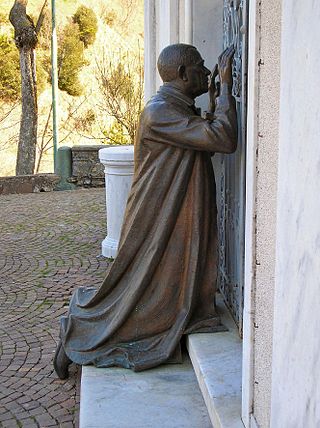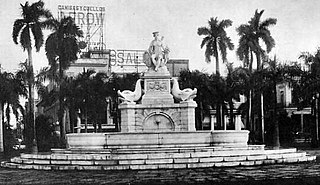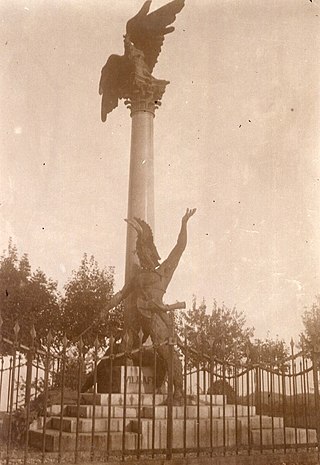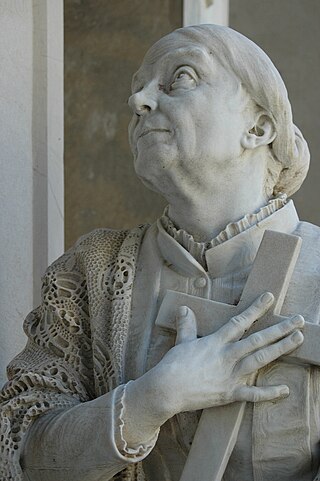Related Research Articles

Filippo Juvarra was an Italian architect, scenographer, engraver and goldsmith. He was active in a late-Baroque architecture style, working primarily in Italy, Spain, and Portugal.

John Melchior Bosco, SDB, popularly known as Don Bosco, was an Italian Catholic priest, educator and writer of the 19th century. While working in Turin, where the population suffered many of the ill effects of industrialization and urbanization, he dedicated his life to the betterment and education of street children, juvenile delinquents, and other disadvantaged youth. He developed teaching methods based on love rather than punishment, a method that became known as the Salesian Preventive System.

Bernardino Cametti (1669–1736) was an Italian sculptor of the late Baroque.

Ignazio Collino (1724–1793) was an Italian sculptor, active in the late-Baroque period, mainly in the region of the Piedmont.

Vincenzo Vela was a Swiss-Italian sculptor, active mainly in northern Italy.

Leonardo Bistolfi was an Italian sculptor and an important exponent of Italian Symbolism.

Luigi Giovanni Orione was an Italian priest who was active in answering the social needs of his nation as it faced the social upheavals of the late 19th century. To this end, he founded a religious institute of men. He has been declared a saint by the Catholic Church.

Odoardo Tabacchi was an Italian sculptor.

The subject of this article is different to sculptor Giuseppe Gagini of Palermo, Sicily, who died in 1610
Antonio Giovanni Lanzirotti was an Italian sculptor.
Silvio Sbricoli (1864–1911) was an Italian sculptor and painter.
Giulio Branca was an Italian sculptor, active mainly in Milan.

Tancredi Pozzi was an Italian sculptor.
Antonio Tortone was an Italian sculptor.

Giuseppe Sartorio was an Italian sculptor.

Saint John Bosco: Mission to Love is an Italian television miniseries directed by Lodovico Gasparini that aired on 22 and 23r September 2004 on Rai 1. It's based on real life events of Roman Catholic priest John Bosco.

Pasquale Romanelli was an Italian sculptor, and apprentice of Lorenzo Bartolini.
Emilio Gallori (1846–1924) was an Italian sculptor, principally of historical monuments and religious statuary.

The Monument to Don John Bosco is a large bronze and stone sculptural memorial, inaugurated in 23 May 1920, located in Piazza Maria Ausiliatrice, in front of the Basilica church of Santa Maria Ausiliatrice in central Turin, region of Piedmont, Italy. The body of Giovanni Melchiorre Bosco, beatified in 1934, is buried in the church.

San Filippo Neri, also called the Chiesa dell’Immacolata Concezione is a Baroque-style, Roman Catholic church located located on Via Vittorio Emenuele II # 61 in the town of Chieri, in the Metropolitan City of Turin, region of Piedmont, Italy. The adjacent seminary is now a museum called Centro Visite Don Bosco, recalling the saint's seminary training here during the early 19th century. The church is part of the parish of the Collegiate Church of Santa Maria della Scala, Chieri.
References
- ↑ Pittura e scultura in Piemonte 1842-1891: Catalogo cronografico illustrato della Esposizione Retrospettiva 1892., A. Stella, Stamperia Reale della ditta G.B. Paravia e Compagnia. Turin, 1893, page 499.
- ↑ Biography of Stuardi